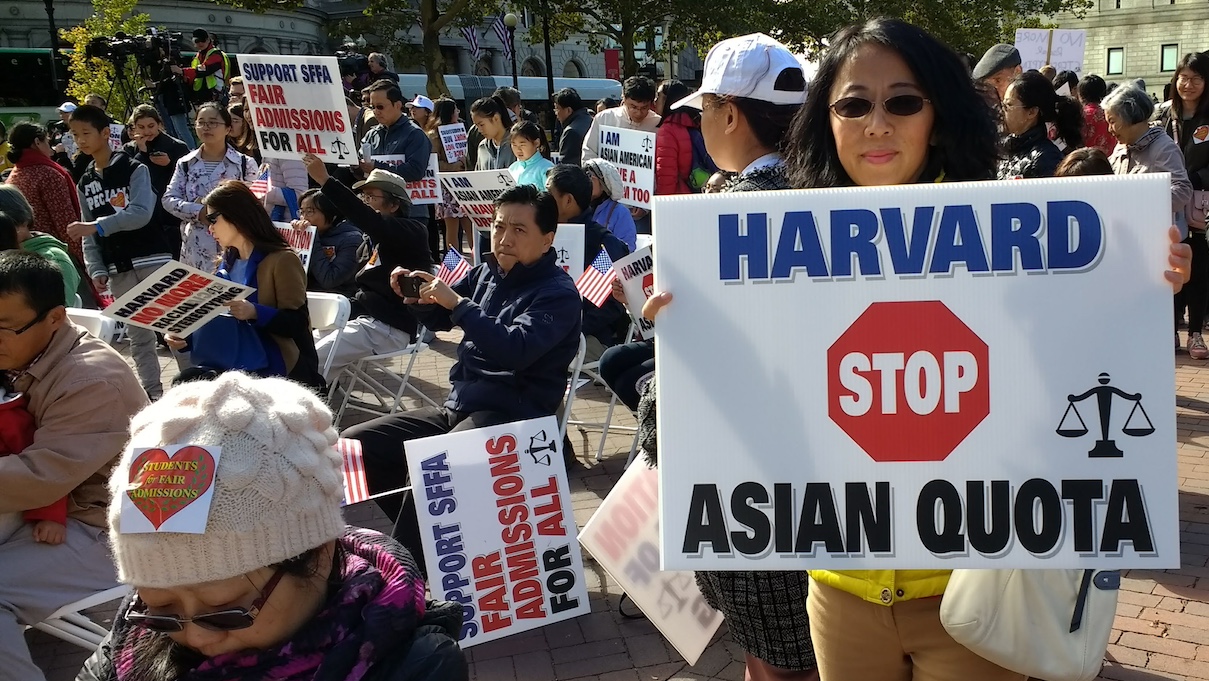Shades Of Jimmy Carter: Gas Lines, Inflation, Rising Unemployment Return Under Biden

Just over 40 years ago, President Jimmy Carter delivered an address to the nation, which was later dubbed the “malaise” speech.
With long gas lines across the country, sky-high inflation and rising unemployment, Carter decided to blame Americans for the country’s woes.
“The threat is nearly invisible in ordinary ways. It is a crisis of confidence. It is a crisis that strikes at the very heart and soul and spirit of our national will. We can see this crisis in the growing doubt about the meaning of our own lives and in the loss of a unity of purpose for our nation,” Carter said.
Not exactly the message a president ought to deliver to worried Americans.
Things in America seem to moving along the same path nowadays. The parallels are by no means perfect, but the optics are certainly similar — gas lines returning, inflation beginning to rise and unemployment ticking up.
GAS LINES
Back in 1979, oil production plunged in the wake of the Iranian Revolution and the coming Iran-Iran War. The price of crude oil soared over the next year, more than doubling to $39.50 per barrel. The price spike prompted fuel shortages and long lines at U.S. gas stations.
The situation got so bad that motorists in America were forced to buy gas depending on their license plates: If the last number was odd, they could only buy on odd-numbered days, and those with even numbers could buy only on even days. Lines to buy gas got so long that people would sometimes wait in shifts: One person doing four or five hours then tagging out for another to wait hours more before reaching the front of the line.
Gas lines have now returned, but for a far different reason.
“Drivers along parts of the East Coast are feeling the immediate effects of the shutdown of the Colonial Pipeline following a ransomware attack, reports CBS News’ Laura Podesta. Some waited an hour or more on lines at gas stations before filling up or learning the pumps had run dry,” CBS News reported. “In Marion, South Carolina, Yasheeka Wiggins said, ‘It was unbelievable. When I was driving today, I thought it was a catastrophe coming! I’ve seen all these cars waiting and I was like, OMG. I have to fill my tank up!’”
The cyber attack forced the closure of the 5,500-mile Colonial Pipeline, which moves more than 100 million gallons of fuel from Texas to New Jersey every day — nearly 50% of the fuel consumed on the East Coast, Fox News reported. The company has suspended all operations since the attack on Friday.
“From Virginia to Florida and Alabama, stations are reporting that they’ve sold out of gasoline as supplies in the region dwindle and panic buying sets in,” Bloomberg News reported. The governor of North Carolina went so far as to declare a state of emergency over the situation.
But gas prices were already soaring before the cyber attack. A gallon of stood at $2.36 just before Biden took office but has risen to nearly $3, hitting $2.98 on Tuesday, according to Gas Buddy. Still, that price hike is partly to blame on Organization of the Petroleum Exporting Countries (OPEC) nations, which in March enacted curbs on oil output in reaction to a decrease in demand due to the pandemic.
AAA predicts prices could rise three to seven cents per gallon this week and warned that there could also be “limited fuel availability” in places.
INFLATION
Carter took office after a recession, which stretched from 1973 to 1975. His term was hampered by what economists dubbed “stagflation,” with the economy experiencing both high inflation and low economic growth.
Fears of inflation have returned under Biden.
“Widespread shortages and production snags are driving prices higher for many everyday items, as an uneven economic reopening leaves Americans facing the unfamiliar risk of inflation,” The Washington Post reported on Monday.
“Significant price increases have affected used cars, medical care, appliances, energy, food and cigarettes in recent months, according to government data. Gas prices headed higher on Monday — before ending the day almost unchanged — after a cyberattack forced the closure of the nation’s largest fuel pipeline,” wrote the Post. “Most economists expect prices for many goods and services to show continued gains on Wednesday when the Labor Department releases its next monthly inflation report.”
Under Carter, inflation rose from 5.8% in 1976 to 7.7% in 1978. After OPEC doubled oil prices, inflation averaged 11.3% in 1979 and hit 13.5% in 1980.
The Post said that some economists, including Lawrence Summers, a former treasury secretary under President Bill Clinton, “warn that President Biden’s free spending could ignite inflation that would outstrip wage gains and leave consumers struggling to make ends meet.”
Americans fear the worst. “More Americans expect inflation to increase over the next few years,” CNBC reported. “Overall, the expectation is that the inflation rate would be up to 3.4% one year from now — its highest level since September 2013 — and at 3.1% three years from now, according to the Federal Reserve Bank of New York’s Survey of Consumer Expectations for April.” That’s the highest level since September 2013.
Marketwatch, meanwhile, reported that the consumer price index, “the main tool for tracking the cost of living, is forecast to rise in April for the 11th month in row, in data due on Wednesday. And the yearly rate of inflation could climb above 3.5% for the first time since 2011.”
UNEMPLOYMENT
Carter actually enjoyed a robust economy when he took office. The economy had grown by 5% in 1976 and achieved similar growth in 1977 and 1978. Unemployment actually declined from 7.5% in January 1977 to 5.6% by May 1979, with over 9 million net new jobs created during that time. But as the economy melted down, with rising inflation and the gas crisis, unemployment rose to 7.8% then, 8% in 1980 and hit 8.5% in 1981, when Ronald Reagan took office.
Biden, too, took over on an upturn. The COVID-19 pandemic crushed the U.S. economy, sending the unemployment rate soaring. The rate hit 3.5% in February 2020, just as the virus hit the U.S. But it soared to 14.8% by April 2021 before starting a precipitous fall, according to the U.S. Bureau of Labor Statistics.
The rate dropped every month for 11 months as the economy rebounded, but in April, it ticked up — albeit by a tiny amount — to 6.1%. Still, economists expressed a bit of worry, especially about the anemic jobs report released that month.
“The relatively weak 266,000 increase in hiring last month means investors will give even more scrutiny to the upcoming batch of economic signposts,” Bloomberg wrote. “Although most economists doubt the labor market has gone soft, the report has generated plenty of second guessing.
The Associated Press put a good spin on the rise, saying “some businesses are struggling to find enough workers as the economic recovery strengthens.”
With viral cases declining and states and localities easing restrictions, businesses have added jobs for four straight months, the Labor Department said Friday. Still, the unemployment rate ticked up to 6.1% from 6% in March.
And like Carter 40 years ago, Biden put some of the blame on Americans. He said Monday that people collecting unemployment benefits under the American Rescue Plan must accept “suitable” employment when offered.
“We’re going to make it clear that anyone collecting unemployment, who was offered a suitable job, must take the job or lose their unemployment benefits,” Biden said before adding: “We don’t see much evidence of that.”
Biden also blamed U.S. companies for not paying their workers enough. “My expectation is that as the economy comes back, these companies will provide fair wages and safe work environments, and if they do, they’ll find plenty of workers. And we’re all going to come out of this together and better than before,” Biden said.
Back in 1980, Reagan summed up the economic situation on the campaign trail. “Recession is when your neighbor loses his job. Depression is when you lose yours. And recovery is when Jimmy Carter loses his.”
Reagan won in a landslide in 1980, winning 489 votes in the Electoral College to Carter’s 49.
The Daily Wire is one of America’s fastest-growing conservative media companies and counter-cultural outlets for news, opinion, and entertainment. Get inside access to The Daily Wire by becoming a member.
" Conservative News Daily does not always share or support the views and opinions expressed here; they are just those of the writer."





